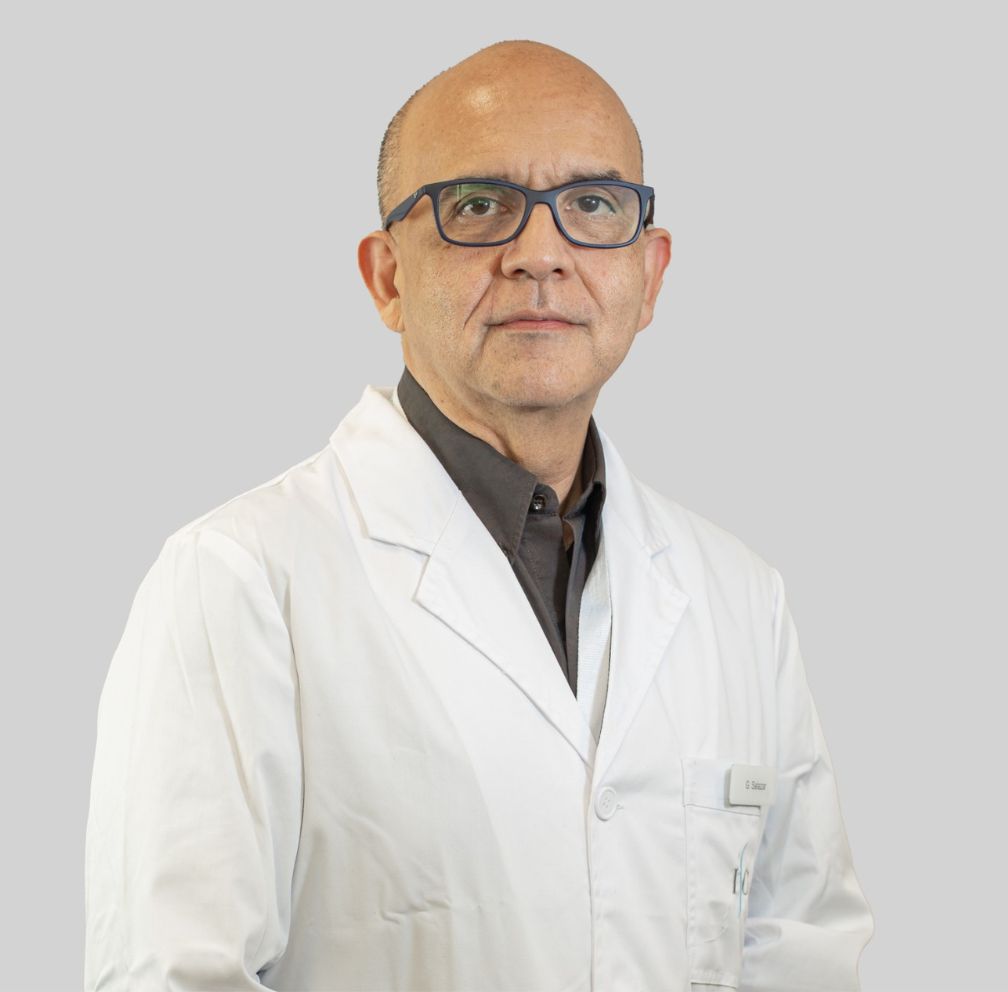Alzheimer's disease is a progressive neurodegenerative disease affecting millions of people around the world. The most common cause of dementia in the elderly, it represents an enormous social burden and is an ongoing challenge for treatment. Instituto Clavel wants to share the news about some of the latest developments in new Alzheimer's treatments, especially non-invasive brain stimulation, which has shown very promising results in the early stages of the disease.
A search for treatment that goes beyond medication
For decades, Alzheimer's treatment has focused on oral medications that attempt to slow the progression of symptoms. However, success with medication has been limited so far, and research continues into alternatives to pharmaceutical treatment of Alzheimer’s.
Dr. Salazar, a specialist at Instituto Clavel, explains it as follows:
"The traditional approach has focused on drugs, but we now have non-invasive therapies such as brain stimulation for Alzheimer's, which include transcranial electrical stimulation (tES) and transcranial magnetic stimulation (TMS). These techniques offer benefits, especially in the early stages of the disease."
What do these brain stimulation therapies consist of?
- Transcranial electrical stimulation (tES): very low-intensity currents are applied to specific areas of the cerebral cortex to modulate neuronal activity and promote synaptic plasticity.
- Transcranial magnetic stimulation (TMS): uses magnetic fields that generate electrical currents in the brain, focused on neural networks related to memory, attention, and executive functions.
Both of these procedures are safe, non-invasive, and painless. They are performed during outpatient sessions, without the need for surgery or anesthesia. As mentioned earlier, according to Dr. Salazar, these treatments show best results when used during the early stages of the disease.
Advantages with respect to traditional treatment
Treating Alzheimer’s with non-invasive brain stimulation therapies has important advantages when compared with pharmacological treatment:
- Minimal side effects: only slight discomfort in the scalp, or a mild, temporary headache.
- Focused stimulation: these procedures directly target the affected brain areas, reinforcing neuronal connectivity.
- Cognitive improvement: international studies have shown there is improvement in working memory, mental processing speed, and spatial orientation, especially in the early stages of the disease.
In summary, these new types of treatment for early Alzheimer's can help slow the progression of the disease and improve the patient's quality of life.
A hopeful future for treatment of Alzheimer’s
There is still a long way to go in the search for successful Alzheimer’s treatment, but non-invasive brain stimulation appears to be a very promising therapeutic approach. It helps maintain the patient’s autonomy for a longer time, serving as an invaluable support for family members and caregivers.
At Instituto Clavel, we are committed to offering our patients the most advanced treatments for Alzheimer's, accompanying each patient with safe, comprehensive, and innovative care.
Frequently asked questions about non-invasive brain stimulation for Alzheimer's
1. What is non-invasive brain stimulation for Alzheimer's?
It is a new type of treatment that includes tES and TMS, non-invasive procedures that modulate neuronal activity without the need for surgery or anesthesia.
2. What are the benefits of brain stimulation in early stage Alzheimer's?
It can improve memory, attention, and mental processing speed, delaying the progression of the disease, helping maintain patient autonomy.
3. Does brain stimulation replace treatment of Alzheimer's with medication?
No. It is a complementary treatment that is most effective when used in combination with medications and applied in early stages.
4. What are the risks or side effects of non-invasive brain stimulation?
There are only minimal side-effects: slight discomfort in the scalp, or a mild, short-term headache.
5. Where is this innovative treatment for Alzheimer's available?
As a highly respected center for treatment of pathologies of the brain and spine, Instituto Clavel offers these non-invasive treatments for Alzheimer's and other neurodegenerative diseases.
Instituto Clavel: committed to innovation in Alzheimer’s treatment
A diagnosis of Alzheimer’s can be an overwhelming thing to face, both for the patient and their loved ones. Fortunately, there is progress in new treatments that can make a difference.
At Instituto Clavel, we are specialists in new, safe, non-invasive treatments for early stage Alzheimer's, which help improve the quality of life for both the patients and their families.
👉 Contact our medical team for a personalized evaluation of your case, and find out how non-invasive brain stimulation can help you.

Dr. Gabriel Salazar
Neurologist
SPECIALIST IN PARKINSON AND DYSKENISIA. PARKISON'S SURGERY, DEEP BRAIN STIMULATION AND HIFU. NEUROREHABILITATION, NEUROPATHIC PAIN, HEADACHES AND BOTULINUM TOXIN.
Categories: Brain treatments, Brain pathologies, Surgery
